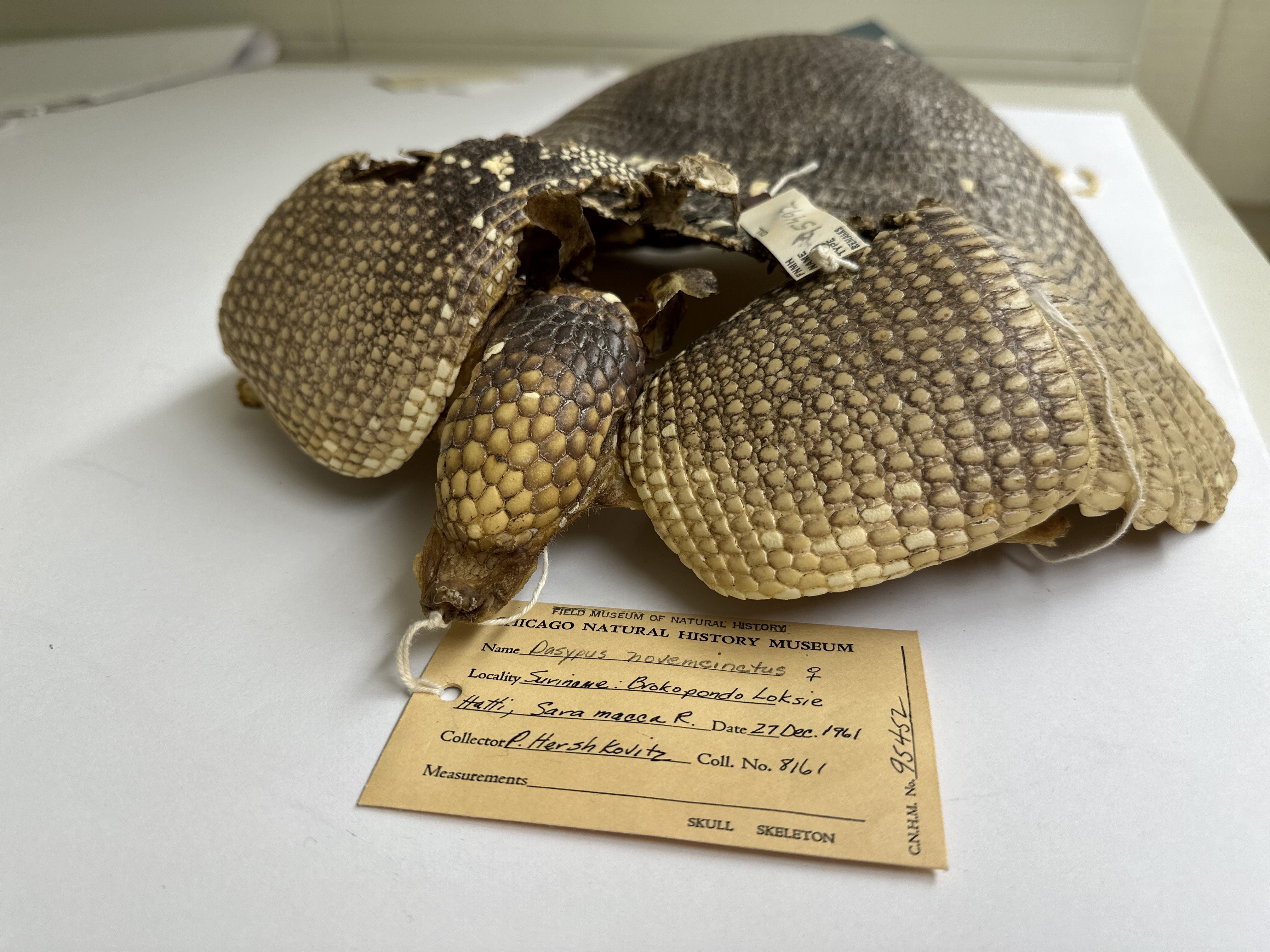In news that’s likely to be awkward for whoever decided that the nine-banded armadillo should be the state small animal of Texas, scientists have discovered that it’s actually four different species – and the only one that’s kept the name doesn’t even live in the state.
At least until now, nine-banded armadillos were considered to be the most widespread of all the armadillo species, with a range that saw them all the way from Argentina up into the center of the US.
That’s a pretty impressive range – but one that had doubt cast upon it when some scientists began to propose that the nine-banded armadillo was in fact a complex of species.
One of those scientists was Frédéric Delsuc, a research director at the National Center for Scientific Research (CNRS) in France, who started to suspect a split within the nine-banded species back in the late 1990s, but didn’t have enough evidence from specimens across the armadillo’s range to back it up.
Now, Delsuc is the senior author of a study that appears to confirm his earlier suspicions.
The research involved a branch of science called museomics, a smooshing together of the terms “museum” and “genomics” because it involves sequencing the DNA of specimens from museum collections. Out of the 80 armadillo tissue samples used in the study, 38 were from museum specimens.

One of the museum specimens used in the study.
Image credit: Kate Golembiewski, Field Museum
This allowed the team to expand the geographical range of armadillos sampled. By analyzing the animals’ DNA, as well as their physical characteristics, the researchers were able to determine how they changed across it.
As a result, they concluded that what was thought to be the nine-banded armadillo was indeed a complex of four different species: the original name Dasypus novemcinctus, found only in South America (sorry Texas); Dasypus mexicanus, found in Mexico and the US; Dasypus fenestratus, found in the central part of the range; and Dasypus guianensis, found in the Guiana Shield region of South America.
As D. mexicanus and D. fenestratus were formerly considered subspecies of the nine-banded, D. guianensis – dubbed the Guianan long-nosed armadillio – marks the first truly new species of armadillo identified in the last 30 years.
DNA analysis definitely made the difference in reaching this conclusion – according to the study authors, they’re almost indistinguishable from one another by appearance alone.
So what’s the point in splitting them up into different species? Again, it’s in part down to their genes – they’re different at a molecular level, and that means they may well have different needs.
“Sometimes, biologists bring individuals from one area to another to repopulate,” said study co-author Anderson Feijó in a statement. “Since they’re different species, with potentially different needs, they will not be able to integrate.”
There’s also the matter of their conservation status – the nine-banded armadillo wasn’t considered endangered, but that might change now the species are separated. “[T]his discovery totally shifts the way we think about conservation for these species and the way we think about how threatened they are,” Feijó concluded.
The study is published in the journal Systematic Biology.
Source Link: Turns Out Texas’ State Small Mammal Is Actually 4 Different Species